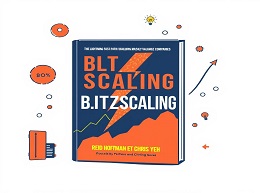Essentialism: The Disciplined Pursuit of Less

"Essentialism: The Disciplined Pursuit of Less" by Greg McKeown offers a refreshing perspective on productivity and success by advocating for the deliberate prioritization of what truly matters. In this comprehensive review, we'll delve into the core principles of essentialism, share compelling examples, and provide actionable insights to help readers simplify their lives and focus on what truly brings value and fulfillment.
The Essence of Essentialism:
McKeown introduces the concept of essentialism as the disciplined pursuit of less, emphasizing the importance of discerning what is truly essential and eliminating non-essential distractions.
Example:
The story of Apple's Steve Jobs returning to the company and streamlining its product line to focus on a few groundbreaking products illustrates the power of essentialism in driving innovation and success.
The Power of Saying No:
Essentialism encourages individuals to confidently say no to non-essential activities and commitments in order to preserve time and energy for what truly matters.
Example:
Warren Buffett's practice of saying no to countless investment opportunities outside his circle of competence highlights the effectiveness of prioritizing quality over quantity and focusing on what aligns with one's core goals and values.
Clarity of Purpose:
McKeown emphasizes the importance of clarity of purpose in guiding decision-making and prioritization, enabling individuals to align their actions with their long-term goals and values.
Example:
The journey of Olympic athletes who relentlessly focus on their training and preparation, eliminating distractions and non-essential commitments, serves as a powerful example of the clarity of purpose essentialism brings to achieving peak performance.
Eliminating the Non-Essential:
Essentialism encourages individuals to ruthlessly eliminate non-essential tasks, projects, and possessions to create space for what truly adds value and brings fulfillment.
Example:
Marie Kondo's minimalist approach to decluttering and organizing spaces demonstrates the transformative impact of eliminating non-essential belongings and focusing on the things that spark joy and enhance well-being.
Embracing Trade-offs:
McKeown discusses the inevitability of trade-offs in the pursuit of what truly matters, empowering individuals to make intentional choices and allocate resources wisely.
Example:
The decision of a successful entrepreneur to prioritize family time over pursuing additional business opportunities illustrates the willingness to embrace trade-offs and prioritize what truly brings fulfillment and happiness.
In conclusion, "Essentialism: The Disciplined Pursuit of Less" offers a compelling blueprint for simplifying one's life, focusing on what truly matters, and achieving greater success and fulfillment. By embracing essentialism principles and letting go of non-essential distractions, readers can unlock their full potential and live a more purposeful and meaningful life.













